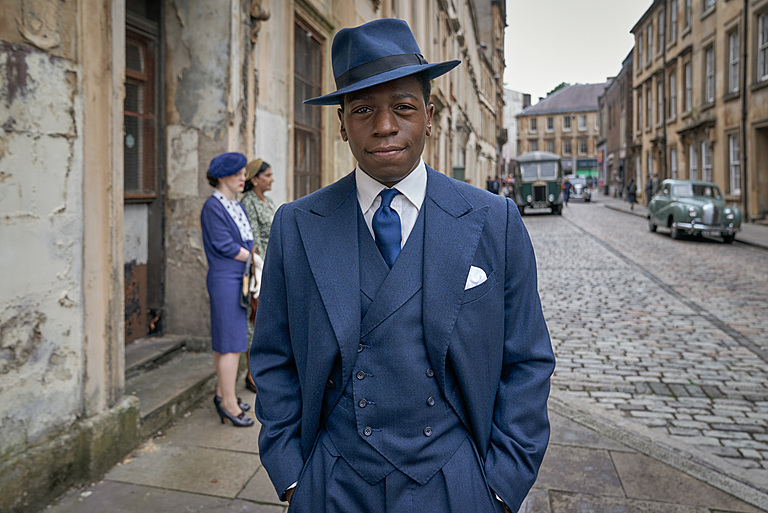I would like to report a murder. It took place in the evening of 27 December in millions of homes around the UK simultaneously. The victim was Dame Agatha Christie – well, one of her works, and to an extent her posthumous reputation. But unlike in the great Dame’s novels, there was no beguiling mystery about the culprit: it was the BBC, a serial offender.
Yet again, in what has now entered the list of modern Christmas traditions, our national broadcaster chose to ‘reinvent’ and thus more or less kill, one of the Queen of Crime’s novels. Christie’s Murder is Easy was retrofitted to suit the BBC’s obsession with racism and colonialism. The hero Luke Fitzwilliam, in the book a retired English police detective, was recast as Nigerian. Meanwhile, themes derived from Yoruba culture were woven into the plot by writer Sian Ejiwunmi-Le Berre to produce an ‘allegory of colonialism’, as the director Meena Gaur put it.
If the BBC wants to lecture us on our social attitudes it could do so, rather more easily, in original dramas
The BBC calls this ‘repurposing’ the classics, an Orwellian formulation that is perhaps more accurate and revealing than was intended. Previous examples of ‘repurposing’ include the rewriting of another Christie novel Ordeal by Innocence to make a man rather than a woman the murderer. Then there was the child sex abuse backstory in A Christmas Carol; the addition of guns and opium addiction into Great Expectations, and the supplementary, omnicompetent female characters in Around the World in 80 Days and War of the Worlds.
The BBC defends this practice with the old ‘relevant to a modern audience’ line. In its original Diversity and Inclusion Strategy document of 2016, then Director Tony Hall opened with ‘our business is storytelling and we must make sure we tell stories that people all across the country will recognise, will understand and will relate to’. There it is: ‘recognise’, ‘understand’ and ‘relate to’ – three terms that seek to validate tampering with existing stories to better fit what BBC management thinks their audience needs. And they clearly view that audience, in their rather creepy Aschenbachian way, as young, diverse, and socially progressive.
The ‘must’ in Tony Hall’s foreword was telling too, as it suggested that none of this would be optional or merely desirable. The BBC is clearly on a mission ‘to inform and educate’, though with the ‘entertain’ part of its founding principles given significantly less priority. This firmness of purpose is confirmed elsewhere in the document where we find such buzz phrases as ‘hardwired diversity’, suggesting mandated rather than optional casting policies.
It seemed clear from that document that the day of the reasonably authentic, respectful dramatisation, which complies with the wishes of the author and seeks to faithfully represent the period would soon be over. Any drama that doesn’t wallop you over the head with an approved message has no value and should either be consigned to the memory hole or substantially rewritten to fit the new realities.
But why not leave the classics alone? If the BBC wants to lecture us on our social attitudes it could do so, rather more easily, in original dramas. Which of course it does. So why the need to also tamper with stories written in a different era, in a time of different values, and thus enrage a portion of its modern audience?
The simpler answer may be that the BBC has become so immersed in its self-appointed role as our moral guide that it no longer knows how to present drama without additional social justice messaging. The last directors who had the required skills and who understood the concept of impartiality have retired or died leaving just those who know no other way than to lard on the DEI homilies wherever they can. Oh, and Christie adaptions are good money spinners, so the supply needs to be maintained.
The more conspiratorial might suggest that the BBC doesn’t just wants to lecture us on how we should think and feel about the world, it wants to ensure that we have no alternatives to reach for. The classics are repositories of an older wisdom and thus need to be neutralised.
The BBC has allies in this endeavour: young viewers introduced to Agatha Christie’s work through TV dramatisations and inclined to explore the original novels will find that new editions from Harper Collins have been edited to remove offensive language. The original as the author intended versions may soon be hard to find.
The Agatha Christie adaptation controversy lands just as a report from the monitoring group Campaign for Common Sense has accused the BBC of feeding viewers ‘a steady diet of woke bias’ across its news and drama output – particularly related to slavery and colonialism. It found 55 articles on the subject on the BBC news website, as well as anti-colonialism related plots in such innocent fare as the school drama Waterloo Road. The reported concluded that the BBC’s Impartiality Plan of 2021, which purported to address issues of bias and loss of trust had singularly failed to do so.
The Christmas Agatha Christie adaption appears to be a brazen flouting of the pledges in the 2021 report and its apparent spirit of reconciliation. It is unclear whether the BBC, with its ‘hardwired diversity’ truly understands the criticisms it provokes; or if it does, whether it truly cares.







Comments